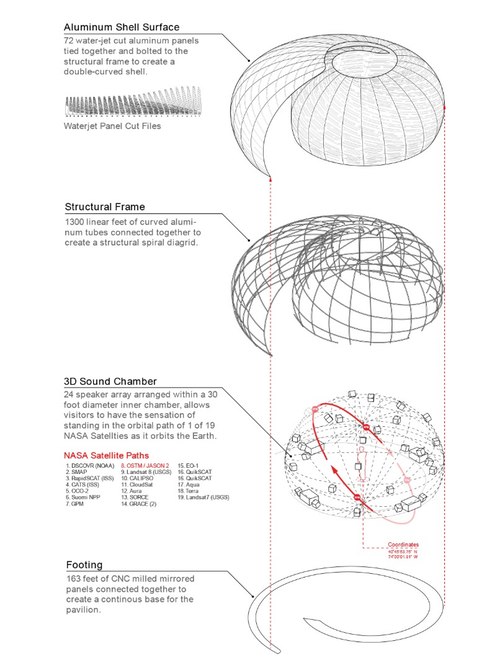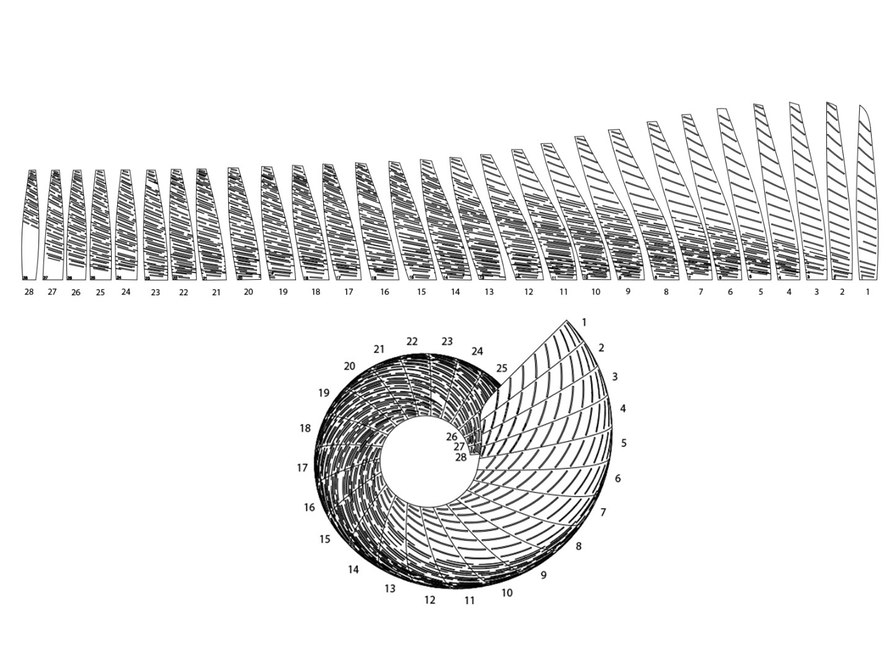
Brooklyn, NYC-based StudioKCA has constructed an interesting pavilion that reflects the trajectory of satellites orbiting the Earth. Commissioned by NASA, the Orbit Pavilion resembles an oversized metal nautilus shell and features an immersive soundtrack.
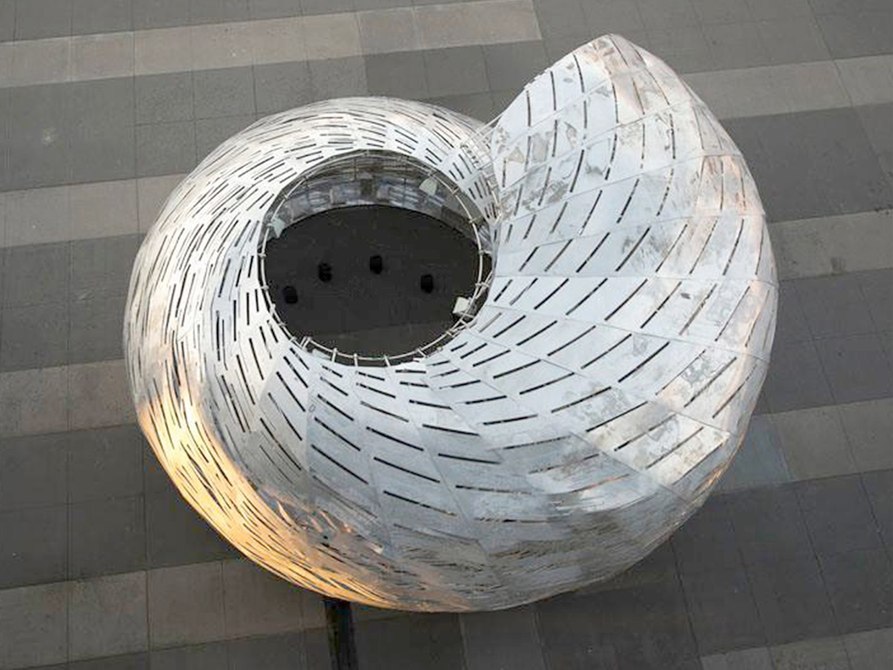
Inspired by the experience of putting a shell to one’s ear to hear the sea, the Orbit Pavilion measures a total of 1,100 sq ft (102 sq m), and is constructed from over 3,500 sq ft (325 sq m) of water-jet cut aluminum panels, which are bolted to an aluminum tube framework measuring 1,300 ft (396 m) in length.
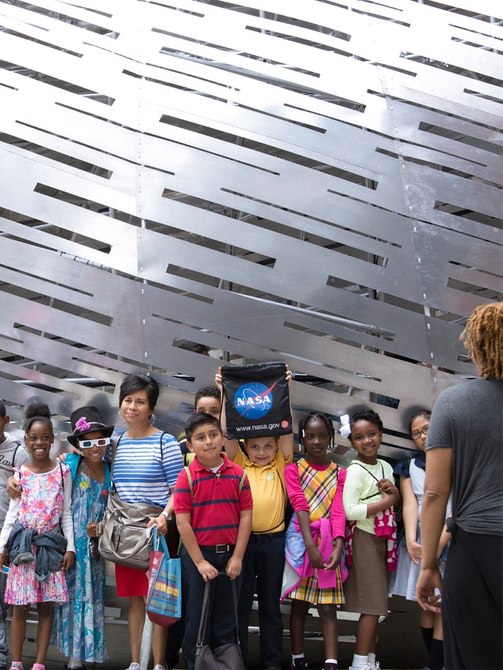
(Credit: Chuck Choi)
It’s a simple structure and the interior is accessed by a curved corridor that forms part of the shell. Inside, there is a large oculus at the center and orbital paths are scribed into the walls. A 28-channel audio setup is programmed to output an electronic soundtrack that reflects the trajectory of satellites in space.
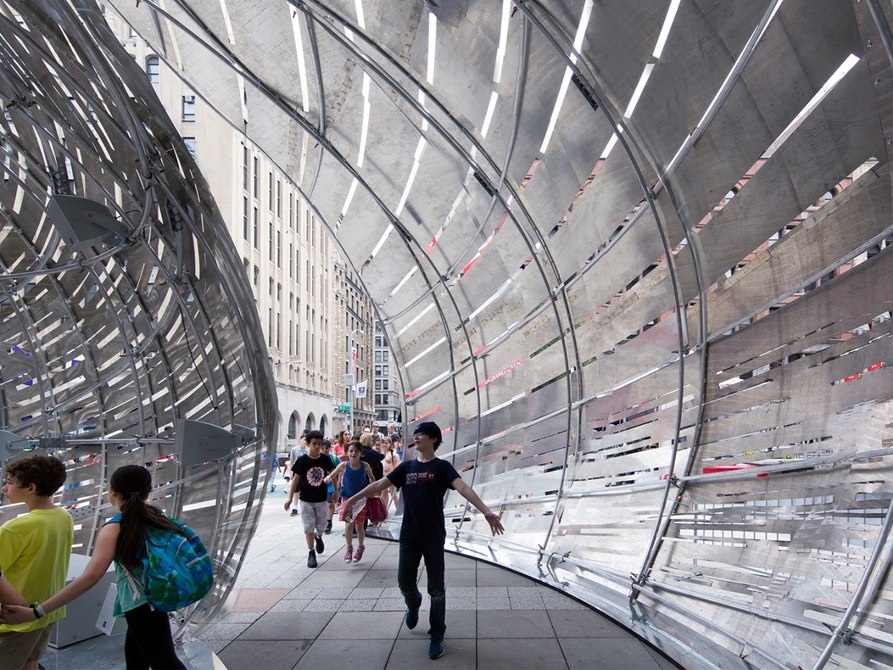
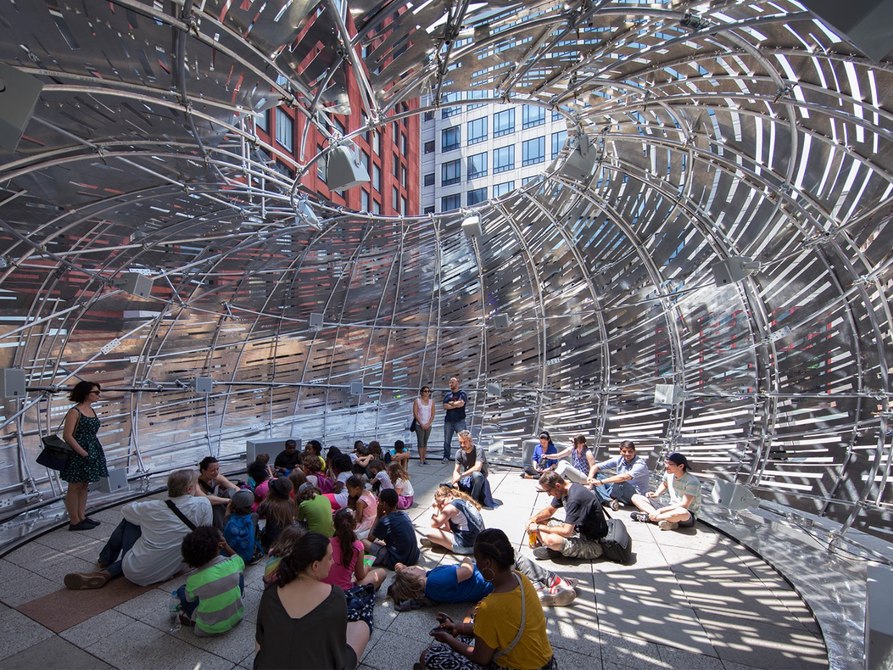
“NASA uses a fleet of satellites to observe Earth – its weather patterns, atmosphere, sea levels and ocean currents, winds and storm warnings and freshwater resources,” explains artist and composer Shane Myrbeck, who composed the sounds used in the project. “The soundscape changes as the satellites move, enabling us to hear them in real time as their orbits bring them into range hundreds of miles above our heads.
From our partners:
“The piece uses actual satellite tracking data provided by NASA to determine the orbital location of the sound representing each satellite. The positional data is updated in real time to translate a spacecraft’s orbit to a sound trajectory on the 28-channel hemispherical loudspeaker array.”
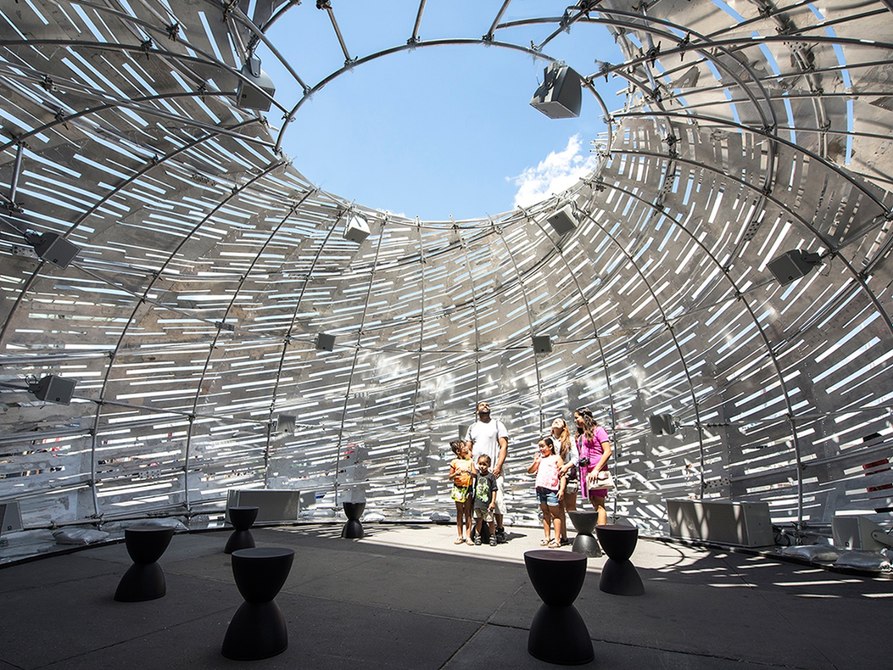
The Orbit Pavilion first appeared at the 2015 World Science Festival in New York, last May, and will soon be headed to Huntington Library Botanical Gardens in San Marino, California this Spring (Northern Hemisphere).
This feature originally appeared in GizMag.







